Greetings everyone! I know I’ve been absent from my Substack for quite some time, and I apologize. During August I had a death in the family and a health scare with another close family member. On top of that, both my computers broke (one was actually lost), so I was only able to do some limited writing on my phone.
But in any case, I’m back now. And to properly kick off my return, I will be releasing a series of essays covering a comprehensive reactionary review of Star Trek. To thank my paid subscribers who so patiently waited through my content drought, I will be launching an exclusive discord server later tonight. I’ll include your topic suggestions into the wider essay, and you will be personally able to DM me with questions/concerns regarding the Substack. I plan on hosting AMA voice chats, and there’s going to be early access/additional content for my projects. This is where I’ll be posting the final edit of Gigaheroes as it’s being completed.
Thank you for all your support.
Part One: From Quoting Shakespeare to Diversity Woman’s Hour
In order to understand what a thing is, I believe you must first understand how it dies. Endings are the most important part of a story because they are the culmination of everything that came before. They dictate the legacy and the memory. It is through the ending that we can finally put the body of work in its proper context. What is Romeo and Juliet if we cut the final act out, and can you really understand the play if you stop just before their suicide? So therefore, in order to understand this franchise, I have to begin this essay with Star Trek’s suicide.
Whatever we make of the heroism of James T. Kirk, the high-minded principles of Jean-Luc Picard, and the reactionary realism of Benjamin Sisko, we have to come to grips with the tragic reality that those things did not last. They were discarded for feminism, queerness, and diversity. And what do those things mean? Modern Star Trek has been quite clear about that. It’s about emasculated men and raging girlbosses. It’s about celebrating every sexual appetite except the one that produces functional families. It’s about fetishizing racial revenge and elevating mediocrity at the expense of excellence.
You’ll find Star Trek has never been more vulgar, more profane, more debauched. It’s small-minded in everything from the cast to production values to the storytelling. It’s about lecturing to the untouchables about their privilege and holding victimhood as the highest virtue. All those tiny elements which we ignored or snickered at in previous shows became the substance of their successors, while those parts we loved about Star Trek—the parts that made it great—were left behind or turned into nostalgia-bait.
The awkward reality of being a normal person from twenty years ago is that every franchise and IP has stabbed you in the back—viciously. And yet despite this, I still harbor a great love for the films and tv series of yesteryear. If I hadn’t, I wouldn’t be writing this essay. It is out of a great sense of love and admiration that I am dedicating this piece, and that is how I want readers to understand my review. I’m not here to tell you Star Trek was evil or anything like that. I’m here to tell you that Star Trek was great—brilliant even, but the rot was there from the beginning.
Looking back, what should I say was the core of Star Trek? Or rather, what was the nature of Star Trek? Was it in those ephemeral elements which turned out to only be in passing? Or was it those elements which had been there from the beginning, and are only now being noticed, like flesh peeling away to reveal the bones of a rotting corpse? And to continue this metaphor, what should I make of this bloated, festering body when its soul has clearly long departed?
But how can I judge old Trek for the new? How can I possibly analyze this franchise with this lens when it has clearly fallen to ideologically captured writers? Surely this once beloved series will course correct once Hollywood hears all the negative feedback from fans.
I don’t know who still believes that anymore, but I feel obligated to address this criticism for that one person who still doesn’t understand how we got here. The world didn’t suddenly turn crazy in 2016. Wokeness is not an aberration or an anomaly, but the logical endpoint of liberalism. It is egalitarianism, personal freedom, and materialism taken to their natural conclusions. It is Star Trek’s values as they actually operate in the real world.
I can look at franchise, see it as a product of the Left, and reliably chart its degeneration through understanding those values and their decline. Star Trek isn’t bad because it fell to a bad writer’s room or predatory corporate interests. It’s bad because we’re currently in a culture-wide crisis that is affecting every form of media entertainment.
If there is one thing I want to get across in this essay, it’s that what we’re witnessing is the real Star Trek as it springs from its stated values. This is the most honest the series has ever been. Once you strip away the Shakespeare, the heroic characters, the sci-fi concepts, the witty banter, and all the moral framing, this rot is what you’ll find underneath. It’s always been there. The bad news is that Star Trek as the political propaganda it has always been is quite ugly. The good news is that those things which made Star Trek great, those things which reached for the good, the true, and the beautiful—those things are eternal. And they aren’t going to die with Star Trek.
The frame that we need to inhabit and the frame of this essay is to view Star Trek as a product of its time. It and the culture it sprang from is dead. It had to die because in order for it to survive, it would’ve had to abandon the very premises that it built itself on. The idea that rationalism and atheism were going to end all conflict was false from the start. The concept that technological progress was going to solve all our problems was wrong. The notion that people are naturally inclined to virtue and that we can eliminate the problem of evil was and will always be completely unaligned with reality.
But what is Star Trek without its desire for eternal exploration and technological progress? What is it without its rational atheistic characters? What is it without the dream of the Federation of planets? The show could still be good, but it wouldn’t be Star Trek anymore. And this is one thing modern audiences ought to learn.
It isn’t good for stories to continue forever. Like organic creatures, they are born, they live, and they die. As we’ve all seen, to try to keep a franchise on life support is a bad idea. And right now, our entire culture is a corpse on life support. Perhaps it’s asking audiences too much to abandon the mass produced slop of Hollywood. But I hope it isn’t asking them too much to want a better culture than what we have now.
We have a choice before us. We can have endless re-runs and reboots and Marvel movies, product fed like heroin to a drug addict, hitting smaller and smaller highs… or we can have art again.
The important thing to internalize is that endings are not a bad thing. To close a book, to shut off the television, to put aside your phone, these are good and necessary. And that does not stop you from returning to them later. But the culture that produced Star Trek—back when it was good—has ended. And our current one can no longer make Star Trek as it once was.
Endings are not a bad thing. That’s what we need to remember in this fading culture of ours. Endings are but the start of a road, however long, to something new you’ll love even more.
Part Two: What is Modern Trek?
Modern Trek is not worth commenting on. Not because there isn’t anything worth to say, but because there’s nothing left to say. Here’s a challenge worthy of the Critical Drinker, go through all his movie reviews and take a shot every time he makes the same complaints and repeats the same two cutaway gags—both about shite. You’ll be passed out or dead before you hit the fifth video.
The problem of stuck culture is that we’re all analyzing the same five or six woke films over and over. Despite there remaining a glut of content, this is ironically the worst time to be a cultural commentator. Never before has our discourse been so narrow. How can we have a dialogue when every Hollywood writer/actor/director is either brainwashed or so lacking in self-awareness that they can’t recognize themselves in the mirror?
Our culture cannot honestly engage in ideas because ideas themselves have become a political battlefield. Now in a sense they always were and always will be, but the problem is that there is no longer anything behind Hollywood’s politics—only power and those who wield it. There is no religious piety, no transcendental belief, no ideas of right and wrong, no vision of the future, no philosophy, no history, no metaphysic, no beauty, no style nor substance, no reckoning with God or Hell or hope or fear or love or death, not one honest belief that is anything other than “you’re a racist and so we deserve to be in charge”.
The great gods of identity politics only exist to serve the Left’s material desires and will incarnate into whatever form that best serves that task. This is why every historical figure was secretly gay and also black as well. This is why women are eternally oppressed by the patriarchy but men are also women. This is why no matter how hard Conservatives yell “hypocrites!”, no Leftist will change his/her/its mind about anything. The utter incoherence of their position is the ultimate trump card to play at the debate table. They can only be temporarily embarrassed, never beaten. And so long as the conversation is framed as an honest debate, the game is theirs.
For a long time, the Left were secure with their high-minded principles, the incredible economic prosperity of industrialization, and that their vision had not yet been made manifest. That security allowed them the ability to engage with ideas and struggle with objections to their beliefs. Now, that illusion is gone. They can’t seriously voice different opinions because those opinions might garner sympathy. They can’t articulate different beliefs because those beliefs are now a threat to their own.
And so what can a vacuous ideology defined by its own incoherence say anything about the good, the true, and the beautiful? It can’t. It can’t say anything substantive because that would pose a threat to itself. To make any claim about the world that does not immediately serve the vulgar desires of the creators is to create a standard which might be turned on them, an alternate view with which someone might voice their objections. Why is it that the Left constantly mock and degrade the past? Why must the whole of human history be abject misery where everyone was oppressed until fifteen minutes ago? Why is it that at every opportunity the Left destroy anything of beauty, grace, and higher purpose? Because those things condemn the Left by the fact of their own existence.
Modern artists must swear their souls to towing the eternal party line, which itself is just narcissism. That, or they make their work so braindead that it couldn’t possibly be a threat to anyone. This is why the woke will never produce a great work of art. To do so would require believing in something beyond power—beyond politics, and the woke cannot conceptualize anything except through politics.
Why was it that the entire online Left were up in arms over whether the movie Starship Troopers was a satire of the Right? Because they understand stories as territory, to be conquered and controlled. A different mainstream interpretation would mean losing ground, however imaginary. And so even the most inane alternate views must be mocked as not being “media literate” enough. I still recall the Left wringing their hands online, launching the endless same few insults, “Don’t you get it!? The story is mocking you! How stupid are you to watch this show!?”
The Left will never abandon this frame. They cannot cede the idea that the Right understands perfectly and just disagrees. This notion would allow the Right territory in the culture, a beachhead through which other works can be colonized by Rightwing ideas. Starship Troopers today, Harry Potter tomorrow, though the Left have seemingly given up their favorite story about wizards, what with J.K. Rowling’s heterodoxy over the trans movement. The point is, to allow the Right any breathing space is an existential terror to the Left because they understand (at least unconsciously) how hollow their position is.
Modern Trek is a skinsuit, and I want to construct a proper idea of what that means. Everything that’s recognizable from the old Trek is to serve its own ego. The tropes and concepts and even characters are there to bend to the knee. They are not real in the sense that they are engaged with in any serious way. People understand storytelling in the vein of Tolkien, of creating a fictional place and time and trying to “realistically” branch off from there. Of course, this realism is just abstract reasoning, little more grounded in reality than the fictional setting itself. But what makes it work, what makes people believe in it, is that writers will engage with it honestly, in the best spirit they can.
This is not the case with modern writers. It is best to look at modern stories and realize that everything in them is not real. It’s not real in the sense of Tolkien. It’s all ephemeral, even if you recognize the faces and the names of the starships. The only thing that’s real, that’s grounded, is the self-congratulatory praise the writers have for themselves, that, and the spite they feel towards you. All the commentary you think you see, everything that cannot be placed in this box, is equally illusory.
Picard will never seriously criticize gay space diversity, no matter how true it would be to his character. And what uncouth comments he does make, the narrative will punish him for later.
This is something I see a lot of people still struggle with. They have a hard time conceptualizing stories as politics, as a means of punishing your real world enemies. They see the abuses on paper and complain about the desecration of their myths, and then fail to realize that the desecration was the point. They think Hollywood still exists to tell stories, but that’s not what Hollywood is for—if it ever was. Hollywood exists to reward its friends and punish its enemies, and its products are emblematic of that fact.
Hollywood does not exist to entertain you. It is an organ of a greater international apparatus that has declared war on native populations of the West. Making Luke Skywalker feed at its breast was not a poor decision of a worse screenplay. It was a deliberate choice backed by corporate executives, directed, written, and shot by industry leaders, funded with the backing of millions of dollars, packaged into a movie called Star Wars, and subsequently broadcast to the entire Western sphere. Make no mistake, this was done with the same spite of a child ripping a toy out of a younger infant’s hands and declaring it to be their own. And to make sure it would be their own, by shitting all over it.
What has happened to Star Trek and every media franchise is not the result of incompetence, though today’s writers are thoroughly incompetent. It’s the result of a seething artistic class that wishes to pervert all film, tv, and literary achievement for the sake of applauding themselves and humiliating their enemies. And in this task, they have unequivocally succeeded.
The only thing to do—the only way to win—is to step back and let them fester on the dunghill they have created for themselves.
Part Three: The Six Captains
I wonder if the world I have just described would’ve been horrifying to Gene Roddenberry, a world completely closed to all ideas, freedoms, and opportunities that do not serve the excesses of a self-indulgent ruling class. I wonder if he could’ve ever recognized such a world stemming from his own progressivism and not the Christianity he so railed against.
Admittedly, it is something of a spectacle to see the modern atheists stumble about, unsure of themselves and the world that is undoubtedly their creation. I have to wonder how Roddenberry would’ve reacted; would it have been with the brazen cynicism of Sam Harris, claiming that it didn’t matter if Hunter Biden had dead children in his basement? Or would he have capitulated with the meek posturing of Richard Dawkins, saying he had been a “cultural Christian” all along?
But as I find in the year 2024, it’s hard to recall when the rationalists and the atheists—when the Left—still presented themselves as strong, vital. The confidence has all dried up, and with it, the dreams of a better future. Long gone are the days when one could declare themselves an atheist and stand heroic against what they considered a corrupt Christian culture. Now the culture is anything but Christian, and our lives have never been more squalid.
However, I find it endlessly fascinating to note the morals of Gene Roddenberry in contrast with his character. He is, in my mind, the first Starfleet Captain. And insofar as understanding Trek, I think it’s invaluable to understand the force of personality who would do so much to define it.
Gene Roddenberry was born in El Paso, Texas in 1921. His family shortly thereafter moved to Los Angeles where his father worked as a police commissioner. Roddenberry majored in police science and married his first wife, Eileen Rexroat, in 1942. Around that time, he enlisted in the United States Army Air Corp and would go on to fly 89 (by his own count) combat missions in WW2. He was awarded the Distinguished Flying Cross and Air medal before being honorably discharged in 1945.
In 1947, Pan-Am Flight 121 crashed in the Syrian desert. Onboard as one of the crew, Roddenberry led the evacuation of the passengers from the burning craft. As the only surviving flight officer, he took command and organized the survivors. He personally made a 4 mile trek through the desert to the nearest town to phone for aid. The Syrian army dispatched troops, and the survivors were rescued. Later when brought before the Civil Aeronautics Board, Gene and two other crew members were given commendations for their heroic actions.
In 1948, with the birth of his daughter and another flight incident with Pan-Am, Gene resigned as a pilot and decided to pursue a safer career in the police force. He worked odd jobs and ends while also pursuing writing. During this time, he had affairs with several police secretaries, a pattern which would follow him the rest of his life. By 1956, he resigned from the police force to pursue writing full time.
Working on several lesser known productions, he began formulating his idea for a science fiction show in 1964. Roddenberry wanted to present an optimistic view of the future stemming from his own progressive ideas. In this future, religion was a thing of the past. The utopia was founded on reason and rationality and the ideals of bettering mankind through science and technology. He wanted a future where disease, hunger, and poverty had been abolished, along with sexism, racism, and class divides.
He was in talks with various studios with story ideas, working closely with Dorothy Fontana as his assistant. Finally, NBC picked up a pilot which was later titled “The Cage” which would fail to meet executive expectations. Roddenberry along with scriptwriter Samuel Peeples worked on more pilots before finally landing on one titled “Where No Man Has Gone Before” which would go on to convince NBC to pick up the series.
Star Trek struggled to find an audience from the beginning, and led to Gene Roddenberry enlisting the support of famous Sci-Fi figures such as Harlan Ellison and Isaac Asimov. He encouraged a student protest over threats of cancellation and a fan letter campaign. Star Trek would go on to have three seasons before its eventual cancellation in 1969, prompting a disheartened Roddenberry to leave the television industry for a time.
During the production of Star Trek, Roddenberry had multiple affairs including with Nichelle Nichols (Uhura) and Majel Barrett (Nurse Christine Chapel, Lwaxana Troi). Gene sought to have an open relationship with both women, but Nichols was opposed to this idea. In 1969, he divorced Eileen Rexroat to marry his second and final wife Majel Barrett in a Shinto ceremony in Japan, though he would still go on to have relationships with other women, particularly Susan Sackett, who was his personal executive assistant from 1974 until his passing.
In 1971 he wrote Pretty Maids All in a Row, a sexploitation film, and going forward he was behind numerous smaller projects which met with varying levels of success. He was involved with Star Trek: The Animated Series which ran from 1973 to 1974. Various more ideas finally coalesced into the 1979 movie Star Trek: The Motion Picture, which was a troubled production but a hit for the studio. Roddenberry would go on to serve in a limited role with Star Trek II: Wrath of Khan, and in a more serious capacity for the first three seasons of Star Trek: The Next Generation which premiered in 1987. Ultimately, Roddenberry’s health would deteriorate, and he would perish in 1991.
To prevent this from spiraling into a full-out biography, I recommend you go to sources which can cover Roddenberry’s life in far more detail than I ever could: Gene Roddenberry: the Myth and the Man Behind Star Trek, Star Trek Creator: The Authorized Biography of Gene Roddenberry, Inside Trek: My Secret Life with Star Trek Creator Gene Roddenberry. They paint an interesting picture of his life including detailing his prolific substance abuse problems. Among other things, he was an alcoholic and indulged in a wide variety of drugs including: cocaine, methamphetamines, cannabis, and a range of prescription medication. These would later compound into adversely affecting his health in later years. There’s also a great deal of office politics which involve allegations of Roddenberry taking credit for scripts he did not write, mistreating his staff and co-workers, and at least one incident with naked dancers.
It’s hard not to notice the contrast of the high-minded principles put forward by avowed humanists/rationalists/atheists, and the conduct with which they led their lives. Sexual impropriety, alcoholism, and drug abuse follows in the wake of many of these biographies. It’s not in the least surprising, but it’s also disappointing.
The true test of beliefs and ideals are in how effective they are in restraining human behavior. It’s easy to put forward a utopian vision of the future that fixes all problems and leads to a better society. Paradoxically, it’s infinitely harder to put forward a morality that corrects the bad behavior in your own life. You can only really know the measure of someone’s genuine belief insofar as that belief goes against their appetites.
Therefore, the question I am continually left with is this: was it all fake? Were these ideals of human progress and a better future nothing more than an excuse for indulging in vice? Which came first, the carnal desire for adultery or the ethics of the sexual revolution? Looking at the life of our first Star Trek Captain, I do not have much reason for confidence. But then again, it’s also tempting to say that it was all cynicism, that Roddenberry and men like him advocated these beliefs for nothing more than to excuse their own improper behavior.
But where do we also factor in the man who flew combat missions in WW2, the man who stepped up after a disastrous plane crash in the Syrian desert and helped save 21 lives? How do we account for those instances of courage and bravery in the face of death?
I think, as with all things human, it’s complicated. You can have genuine beliefs that influence your behaviors, and you can also have behaviors which inspire genuine beliefs. And mixed in with all of that is the powerful human tendency to self-rationalize. Where does the good of a man end and the bad of him begin? Did what he believe lead him down this road, or were his excuses simply picked up along the way?
The worst part of all of this is that you can (and most often have) bad beliefs with genuine believers. That ought to be the first lesson of reactionary politics. People can and often do believe in what is fundamentally corrupt, especially if there’s a nice coat of paint on it. We are trained by our modern education system to give each and every person the maximum benefit of the doubt, that even if their actions are catastrophic, that they must at least have good intentions. But to excuse bad behavior with good intentions is the worst kind of tolerance because a genuine person with bad beliefs will rarely—if ever—reform.
I’m not going to weigh in on the fate of Gene Roddenberry’s eternal soul, but from looking at the man’s life—the life of our first Captain—it’s indisputably a squalid one. And while no other Captain in classic trek would ever sink to such debauchery, they do have the unspoken benefit of being completely fictional.
For our first televised Captain, James T. Kirk is a protagonist straight out of a pulp novel. Though Star Trek will never abandon its raunchiness, never again does a Captain embody the archetype of the rogue like Kirk. Never again does the lead inhabit the sort of masculine spirit you’ll find with characters such as James Bond, John Carter, or Conan. There is much speculation on how much of Roddenberry is in Kirk, especially with the sexual overtones, but I would be more interested in learning how much of Kirk was in Roddenberry.
Here you have an imminent clash of a pre-modern man being violently sawed, shaved, and sanded down to fit a comfortable modernist mold. He’s a sailor from the age of exploration quoting 20th century axioms. If Picard is the aristocrat liberals wish to be, Kirk is the ladies man liberals want to be.
What if this archetype had been allowed to express itself honestly? He would be something altogether threatening, certainly not as noble or heroic from our standpoint, but he would be a man in the same sense that Alexander the Great was a man. Modernists justify Alexander with the cultural gains of his conquest, but the likes of Alexander do not feel the need to justify themselves. They are men that go out and impose themselves on the world. However, Kirk is a man who is imposed upon, and not by the chivalrous virtue offered by Christianity, but a rather cold and indifferent moral framework. Kirk is a bureaucrat’s caged animal, and yet I can’t help but see the shadow of a conqueror—or at least a warrior—in him.
You’ll be surprised by the number of times he resorts to fisticuffs, and of all the Captains, he is the least interested in doing things “by the book”. I distinctly recall my days of watching the original series with my father then transitioning over to The Next Generation. If Picard is the quiet, contemplative explorer of the cosmos, Kirk is the rocker boy in comparison. What makes Kirk fascinating is that he’s the most distinctly out of place in the world of the Federation—which itself was a far more nebulous entity back in the days of the original series.
So why then was he the first? It seems at odds with everything we would come to expect from the image of Star Trek. While the philosophical musings are still there, the last thing I would’ve expected, the last thing when I think of the Left, is an appreciation for masculinity. And not just the elderly, quiet reservedness of Jean-Luc Picard, but the kind of gallivanting that one might expect from a pirate or a cowboy. James Kirk is a man married to a ship and his eyes fixed on the horizon, not unlike Captain Jack Sparrow from Pirates of the Caribbean.
James Kirk was the last time Star Trek (and probably the Left for that matter) understood the joy of boyhood. Kirk is a man riding a wooden horse (the Enterprise), and whooping with delight as he sets course for the next star system. His juvenility and vigor and his heart on his sleeve is an artifact of a time when masculinity wasn’t demonized and crushed in public education.
The tragedy is that everything Kirk believes in crushes the spirit with which he travels the cosmos. And it’s literally there in the movies. His promotion to admiral kills his soul. The bureaucracy literally smothers him, overtaking his vitality, and it’s only through returning to the Captain’s chair that he becomes himself again.
There is never a moment more in Star Trek where you have a Captain so unlike the Leftist ideal of what a man should be. And upon reflection, it is not altogether surprising that Star Trek lost this understanding of masculinity first.
Jean-Luc Picard is an aristocrat without a people, a man of blood and soil cast forever adrift. You’ll quickly find a running theme in these Captains with pre-modern archetypes being hijacked for modernist ideals. Though I don’t want to talk about Picard as the hypocritical aristocrat (that’s already been done to death). What fascinates me about this particular character (and you see this as a running theme with Kirk as well) is how Star Trek doesn’t have an easy answer for aging gracefully.
Of course, throughout The Next Generation Picard is the definition of grace. He’s still in his prime during the show, but eventually, a day is going to come when he will be forced to take a step back from his Captain duties. Perhaps he’ll be made an admiral? But then what after that? Is he going to return to his French vineyard as seen in several episodes, one day switching off all his ambition and the things that made him a great man of history? Is he going to spend the rest of his days in that little cottage, forgotten by the Federation save for a few friends from the Enterprise?
Of course not, we’re going to wheel him out for another adventure! At least that’s what Star Trek: Picard wants to do. Now that show brought him back for nostalgia purposes, but it serves as an ironic metacommentary that once you’re a starship Captain, you’re a Captain till you croak. You’re going to sit in that chair, slowly withering and becoming more decrepit until you collapse in a heap of ash. And then someone else will take your place.
But something always struck me as profoundly wrong with the alternative, with gracefully bowing out and being placed in the cottage. Was that always going to be the end of the journey, a boring retirement? All that adventure, all those high stakes, all the fighting, all the philosophical musings, and that deep aspiration for something higher, does it really end in a lonely French cottage, being passed by and overlooked by history? After everything Picard has done, is this how it ends? Is this what Q saw when he leaned in to whisper into Picard’s ear? You’ve given your entire life in service, but the answer, the ultimate meaning behind it all, is for someone else a little younger?
Going off the Fandom page, Picard had a child with Beverly Crusher somewhere in the canon. One child. Apparently in an alternate reality he had more children, but for the canon timeline, he didn’t have any lasting relationships, and you can bet the Picard bloodline is probably going to die when Jack Crusher (Not Jack Picard for some reason?) finally bites the bullet.
And then that’s it. The story of the Picards ends not with a bang but with a whimper. Ironic, because The Next Generation situated itself as a more family oriented show than its predecessor. Perhaps marriage interferes too much with the duties of a Captain? But it seems all the other officers can happily pursue relationships.
When I look at this cottage ending, which we got some look at in the finale of The Next Generation, how would you know Picard did anything at all? How would you know he was the man who fought and defeated the Borg, who resolved countless political crises involving the Romulans, the Klingons, and a whole host of other species, who saved billions of lives and won the day time and again, who is an unparalleled landmark figured in human history? And this is how his story would’ve ended? An old man sitting on a porch?
Of course, all his achievements are out there and couldn’t be easily shown with his retirement. But isn’t there something to be considered about a life that was spent in service of endless expansion, endless growth and progress, and yet to end so small? What did Picard cultivate? He’s supposed to be the aristocrat, right? What did he ever do about home except return tiredly to it when he could no longer be on the frontier? And when he did return, he was so old he couldn’t do much of anything but wait for his eventual death.
What answer does Star Trek have for the old man except to masquerade as a young man? And what happens when that is no longer possible?
Benjamin Sisko is the darling of the Dissident Right, the based Captain who made all the edgy choices, and I’m going to explain why that was a bad thing. Well, thankfully it wasn’t bad for us. Sisko was in many ways the death knell of the Left’s high-minded principles. He was the first major character in Star Trek to substantially voice the power of the exception. And after that, Star Trek was philosophically finished.
Now it’s very useful to think of values and morals as problem solving tools. They are ingrained compasses which are designed to optimally guide you through every situation you encounter in life. Of course, “optimally” does not need to mean the most materially well off. As most of us would agree, being a “good” person is more valuable or “optimal” than being rich.
But what if these problem-solving tools are unable to solve the problem at hand? Not from an ignorance or a failure to apply the moral system, but rather a fundamental defect in the system itself? What happens when the tools you use no longer work? What happens when you are no longer able to reach the desired outcomes?
You either have to compromise with a less than desirable outcome, or you make an exception. You step out of the framework in order to solve the problem. In other words, you make a moral compromise.
Benjamin Sisko was Star Trek thinking it could get away with a moral compromise. But the problem with moral compromises is that you generally find yourself making more and more exceptions as time goes on. Sure, you say to yourself that it will be just this once, and maybe it is for a while, maybe a long time, but another situation will come along. And then you make another exception.
The problem is that Star Trek had nowhere to go after Sisko’s blatant exceptions. It didn’t offer any alternative morality other than the naked use of power. After Sisko, there was no salvaging the utopia and keeping it internally consistent. The Federation owes its continued existence to a man who betrayed everything it stood for: of mutual understanding, peaceful negotiation, and violence as the last of all resorts. But it was more than that. Sisko’s betrayal was in such a way that it wasn’t clear that he had any other choice. In other words, it’s difficult to caricaturize his decisions as merely a character flaw but rather a greater systematic failure of his worldview.
Sisko is the reactionary’s Captain not because he made the most ethical choices, but because he exposed the flaws underpinning the Left’s worldview. And once those flaws were laid bare for all to see, it was impossible to put the genie back in the bottle. Sure, we can continue like nothing had happened, and Star Trek did continue like nothing had happened, but it’s impossible to forget the problems that Star Trek had voiced against itself. And all the enemies of the Left needed to do was to repeat the Left’s own unanswered objections back to them.
Captain Janeway was the only Star Trek Captain who “won” and that’s a fact that frustrates me to no end. She got everything she wanted out of her storyline (which is quite humorous in hindsight. She’s the only female Captain and all she wants is to go home).
It isn’t that she’s a poor Captain—she has the aid of the writers after all—but she’s a thoroughly unremarkable one. Besides a few questionable choices that strike me more as poor scriptwriting than a commentary on Janeway, there’s not a lot I find especially interesting about her.
Which is, ironically, the very interesting thing. The Left want to put women in leadership positions, and that’s fine, but to pretend that this doesn’t drastically alter the social dynamics is nonsense. The writers genuinely want Janeway to be the woman Picard. But making Picard a woman destroys what Picard is.
Throughout watching Star Trek: Voyager, it felt like the show was in a constant state of unease. It wanted Janeway to inhabit this very masculine role and pretend that a woman in the Captain’s chair changes nothing. But it changes everything, and it requires so much work to brush past that.
Every word and line of script has to be second-guessed so it doesn’t get misinterpreted. How quickly disciplining a subordinate can become scolding! How fast emotional drama can become bitchy pouting! How easy it is to step over from the professional and into the personal!
And even still, Janeway was never so much a military commander as she was grandma—which makes the episodes with sexual themes really bizarre—but that’s leave that aside. The problem is that professionalism cuts very deeply into the grandma archetype and vice versa. Janeway is the Captain with the least internal conflict, and that’s because the writers can’t access those dimensions without compromising her as a ship commander. They have to rely on gender neutral or masculine plotlines because expressing the feminine aspects would very quickly lead them down dangerous waters.
And meanwhile, the problem of grandma affects all the relationships with the rest of the crew. It might surprise some people to hear this, but Chakotay had the most potential out of any second-in-command officer in Star Trek. He was a defector from Starfleet who joined up with the Maquis (a rogue faction from the Federation). He had a spiritual side to him, well, as much as a person can have in Star Trek. And during the pilot episode, he was his own Captain before joining up with Voyager. This sounds almost like the kind of well-written character we see from DS9!
So how did he clash with Janeway? How did his command style conflict with hers? What were his ideological and religious misgivings which must’ve been a recurring plot arc as the series progressed? How did this rebel with a very real cause mesh with the Starfleet Captain who represented everything he stood against?
Well… he didn’t. He just shrugged his shoulders and went along with it. And while you can argue this is from a lack of vision on the writer’s part, I want you to try to imagine how a strong Chakotay would play out against Janeway. It’s very clear if any serious conflict happened between them, Chakotay could overwhelm Janeway with a force of personality and access to violence that she fundamentally doesn’t.
I could imagine a fistfight or even a shootout with Kirk, but how would this ever resolve with Janeway coming out on top? It becomes almost farcical to consider. There are a lot of stories where two opposing sides come together to work for a common cause, and usually that’s mediated through threat of mutual violence. But Janeway doesn’t have that kind of spiritual force in the believable way a man would. You’d have to walk a really thin tightrope with some seriously competent writers to pull that off, and even then it could only ever be Janeway wearing the archetypal guise of a man.
There’s very few realistic options for Janeway to force Chakotay to submit and work together if he doesn’t want to. And so the easiest path for the writers is just to neuter Chakotay and kind of go along with everything. You’ll notice a lot of stuff around Janeway happens like that. That’s why the best stories in Voyager are almost always away from its titular Captain. Just compare her with the charisma of her own helmsman, Tom Paris, and you’ll quickly see the issue.
There’s so much mental calculation that is needed to prop up Janeway, and that’s why Voyager was the weakest of the five. All that narrative energy was being spent on selling her as a strong commander. I imagine it was probably to the point where they were axing more interesting plotlines and character beats because they might’ve made Janeway look bad. How can you have a serious treatment of the feminine soul in a profoundly militaristic—a.k.a masculine—context?
The result could only be at best an uneven mediocrity, and that’s exactly what Voyager was.
Archer is a strange ouroboros for our final Captain. Now I’m not against prequel shows like Star Trek: Enterprise on principle, but the reason our culture defaults to prequels so regularly is because we have lost the ability to look forward, to create something new. And so the function of many prequels is as a self-devouring commentary, always circling further and further inward, explaining minutiae that never needed explaining in the original product. And while Enterprise does a far better job than most, I still find the practice superfluous. Did I really need to know why Klingons had no forehead ridges in the original series versus The Next Generation? It’s nice, but not really.
I mention this as Archer takes on his most interesting dimension when viewed as a prequel character. Because the future he is set up to explain is not the future of the Federation—at least not as we would have in the original series and The Next Generation. Archer starts off as an optimistic explorer not unlike Kirk, but instead he’s slowly worn down as the series progresses.
You have a man who is supposed to lead the way for a prosperous utopia who instead embraces increasingly militant positions. He realizes the value of weapons and force of arms and comes to strongly advocate for them. The galaxy is hostile and indifferent in a way that it never was in Kirk’s day. The narrative won’t let Archer away from his destiny to found the Federation, but it’s so incredible that the final episode of classic Trek ends with a tragedy—the death of a close friend—rather than a glorious victory. It casts a surprisingly somber shade over everything that comes after, despite the heartfelt message it’s going for.
It highlights how despite moving narratively back in time, writers weren’t able to really roll back the clock. They couldn’t reach the same hopeful optimism you have with the first two entries. Instead, there’s this creeping cynicism that underlies the whole project. While I doubt it would’ve ever threatened to rock the franchise, the realism points to a far grimmer version of events, one where the Federation takes on the connotations of empire. We’re supposed to believe that things improve by Kirk’s heyday, but the objections Archer faces and articulates are never really disproven or go away.
Archer is the most reactionary Captain besides Sisko. And you see in this man a niggling crisis of faith. Archer doubts in a way that sets him apart from all the rest. Should humanity explore the stars? Does the galaxy want us poking around? Would it be better if humanity stayed home, or barring that, send out warships instead of exploration vessels? The narrative rushes to reassure Archer at every turn, that this is the best path forward, that this is the manifest destiny, but it never feels final. The doubts always come creeping back, and Archer never stops pondering.
I can never fully make the leap from Star Trek: Enterprise to the original series, despite the story itself setting me down and recounting the events. Archer’s is the story of a Starfleet Captain set at the Federation’s inception when he ought to have been at the Federation’s collapse. His narrative makes infinitely more sense as the last of the galactic explorers rather than the first. But there was no way you were ever going to find a writer’s room bold enough to do that in the early 2000s. And so from that time onwards, we could only create ever more cynical versions of the same product, first narratively, and then finally on part of the writers.
But Archer was, in a sense, the last of the Captains anyway. He was the last who honestly dreamed of the Federation, and he was the last who made you want to believe in it too.
Interlude
Thank you for reading! This concludes the first entry in my very long discussion of Star Trek. There’s a lot more I have drafted and a lot more coming down the pipeline. So stay tuned! Today was very much an introduction to the key topics. We’ll start diving into the finer details with the next part.
I want to re-iterate my eternal gratitude for my paid subscribers. When I am slow in pushing out content, it always leaves an awful ick in my mouth. If I could deliver everything instantly, I would do it in a heartbeat. You’ve stuck by me through thick and thin, and there are not enough words in the English language to express my deepest thanks.
Thank you and see you later,
-Isaac
Link to next installment





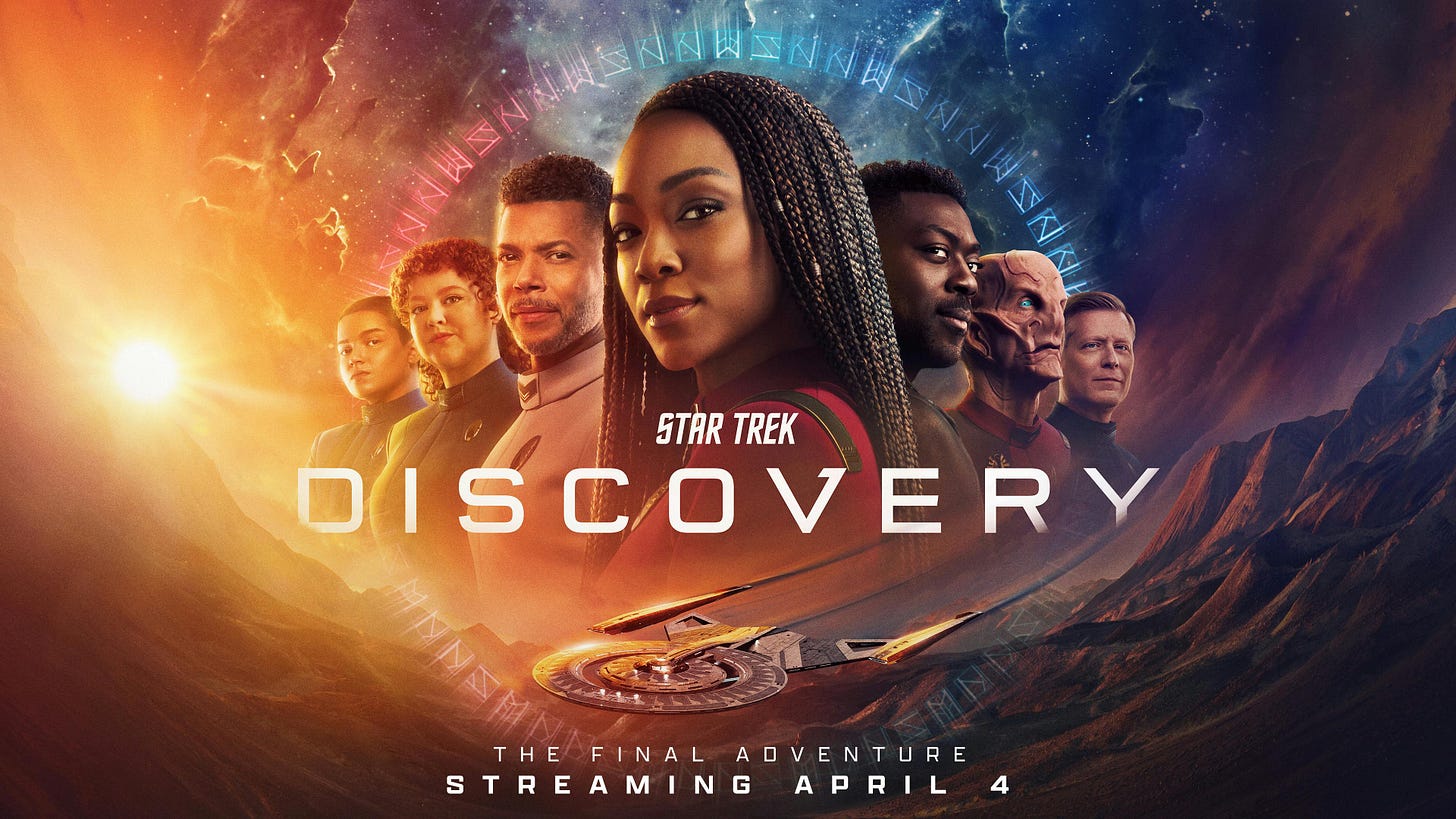
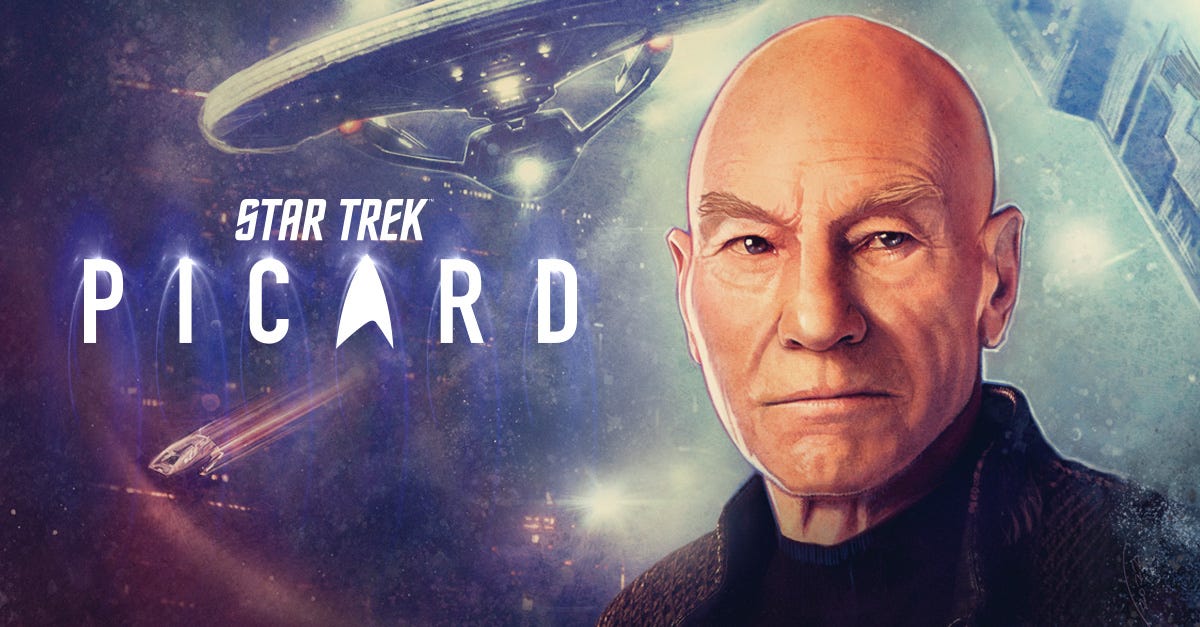




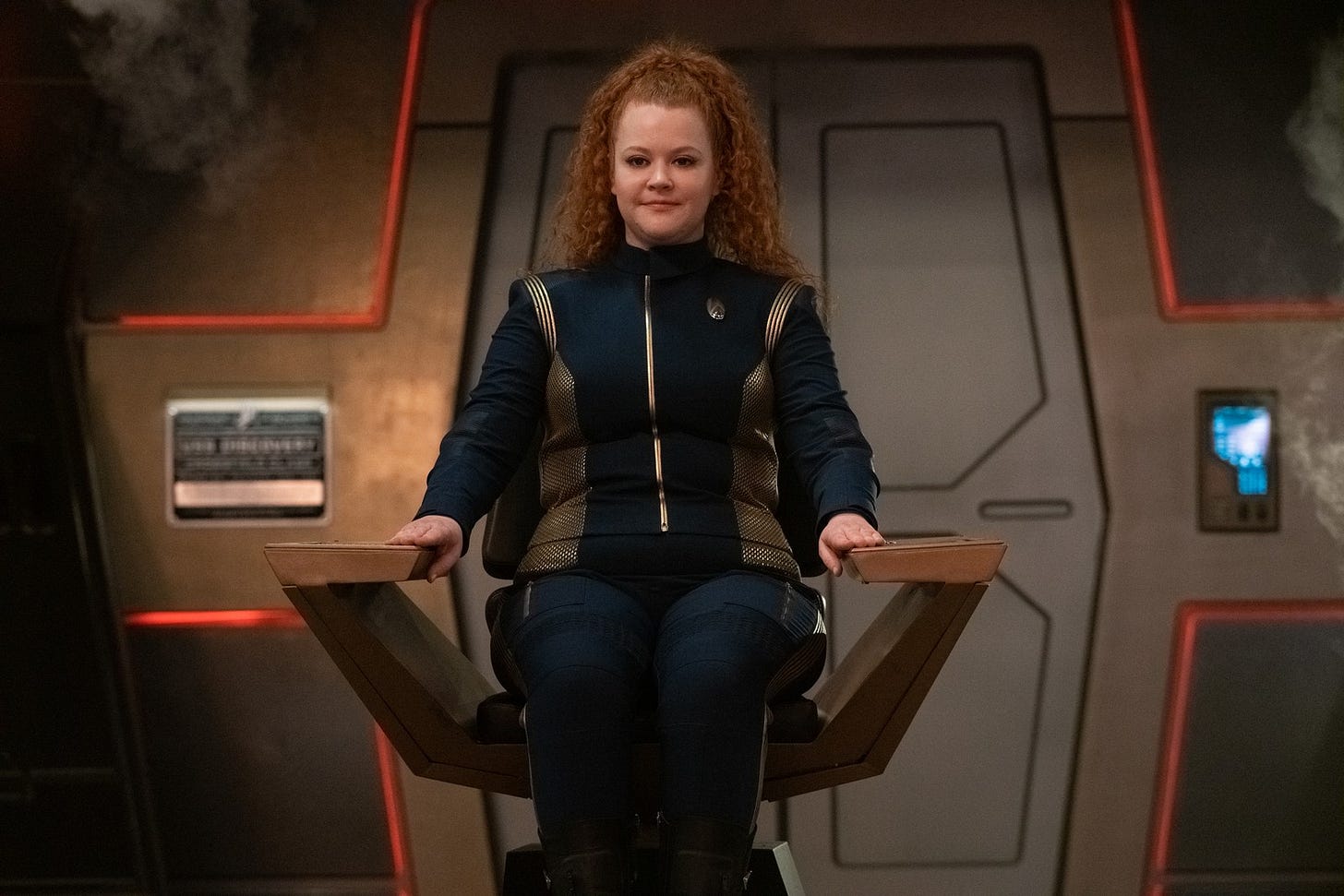

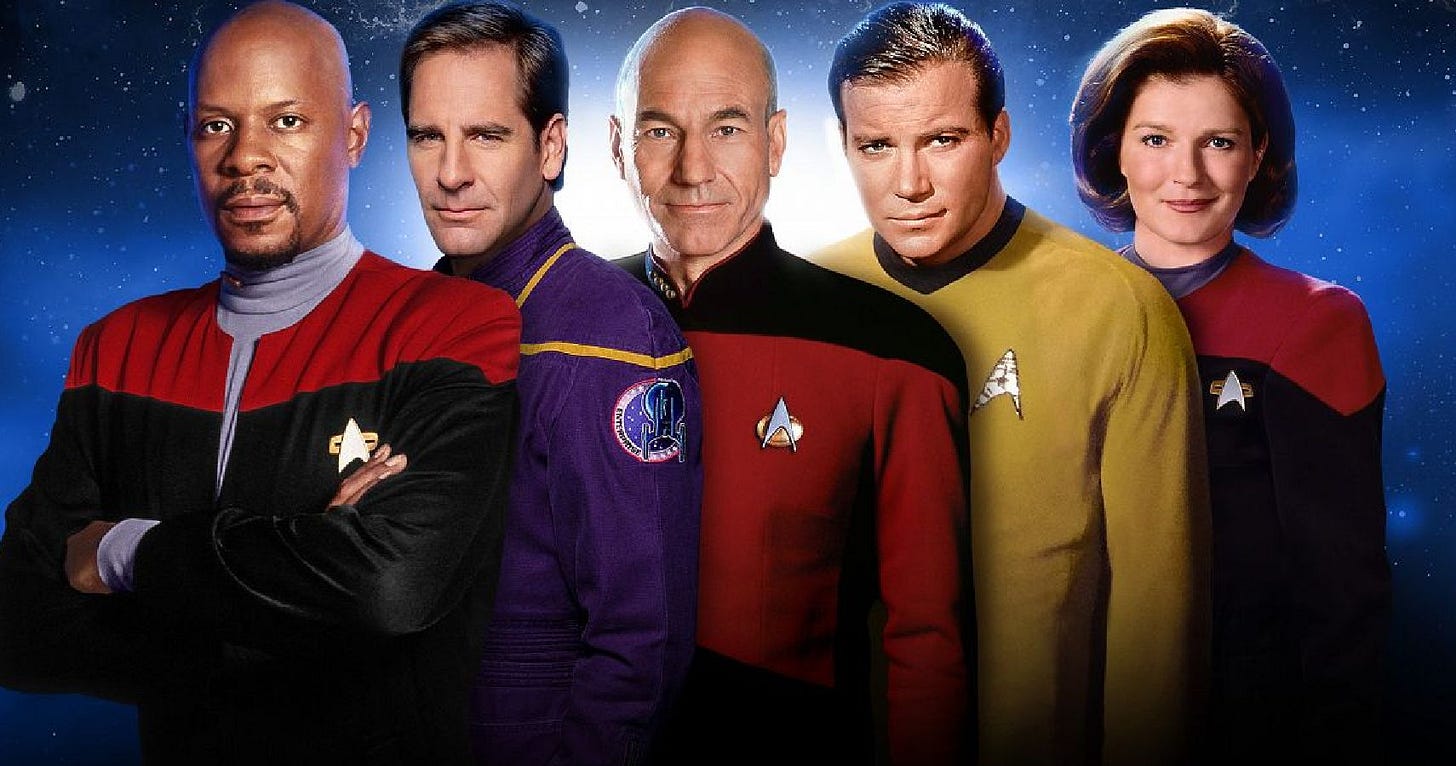
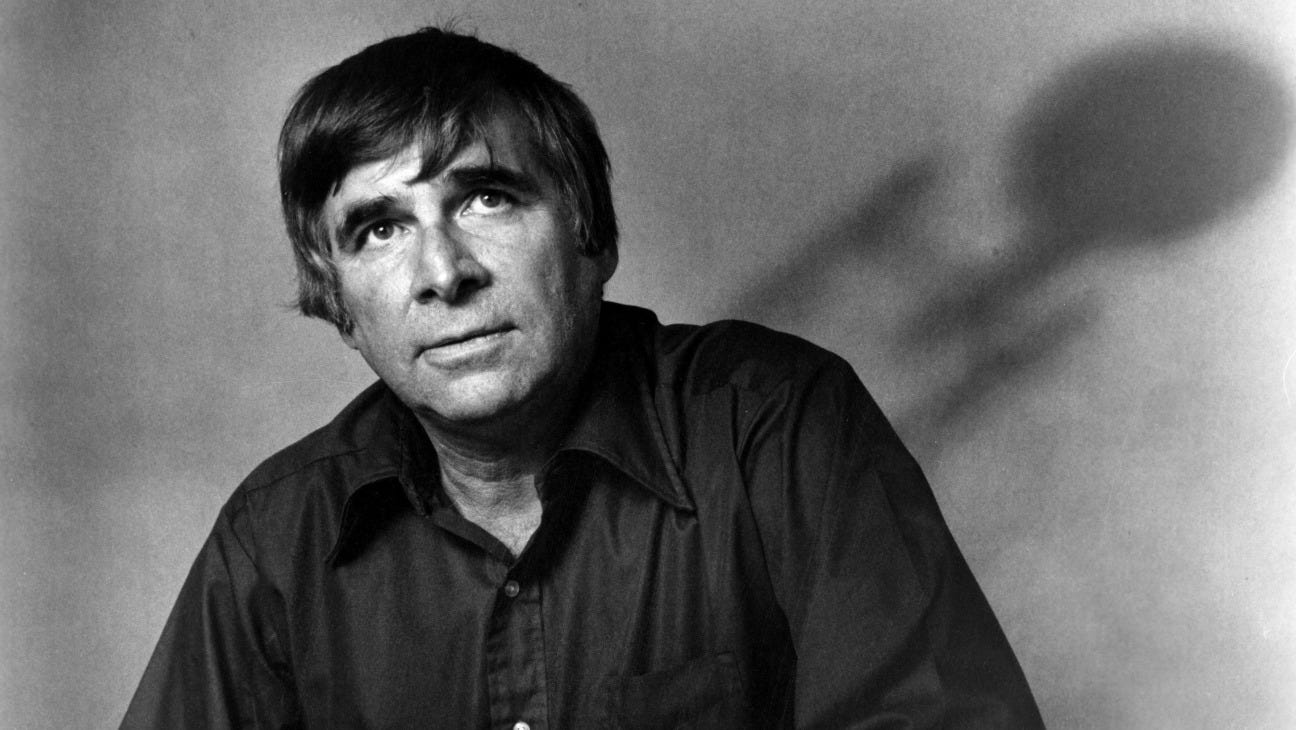
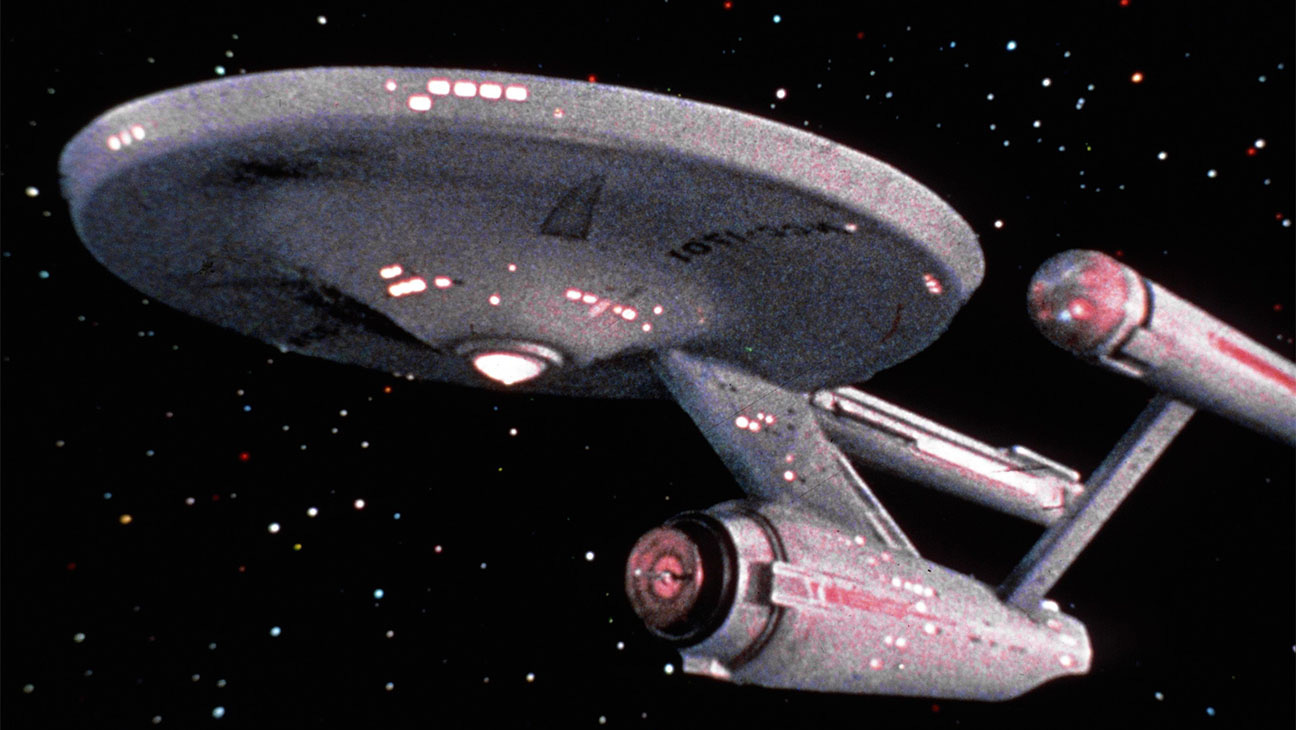
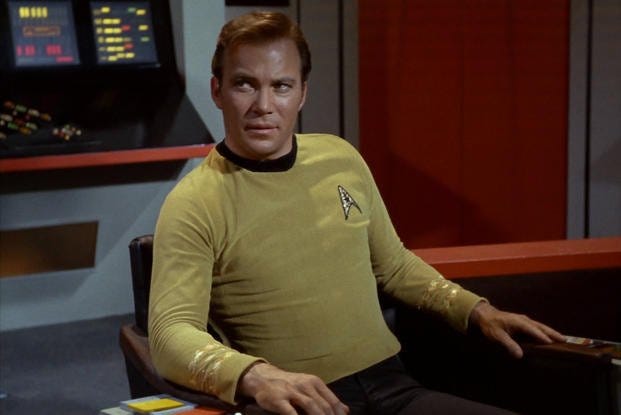
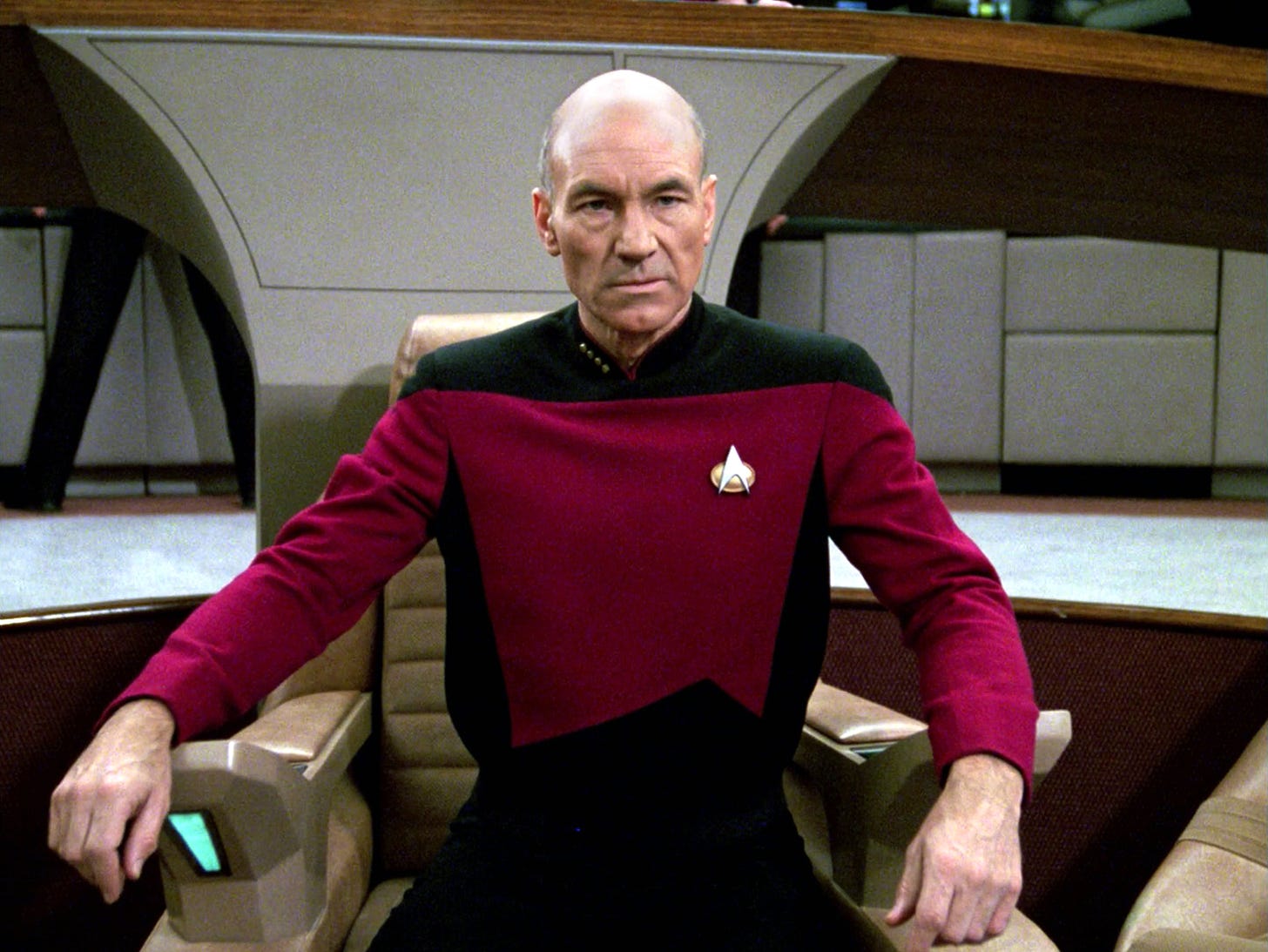
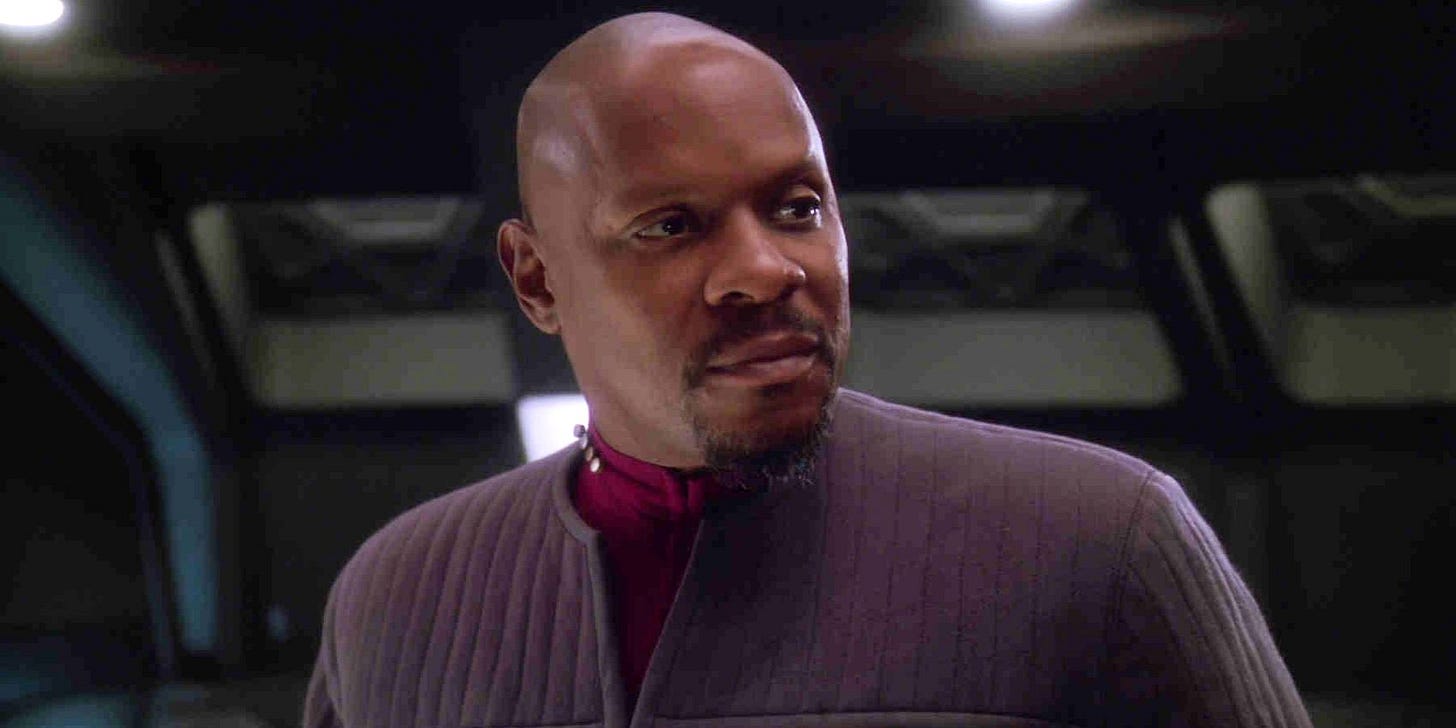
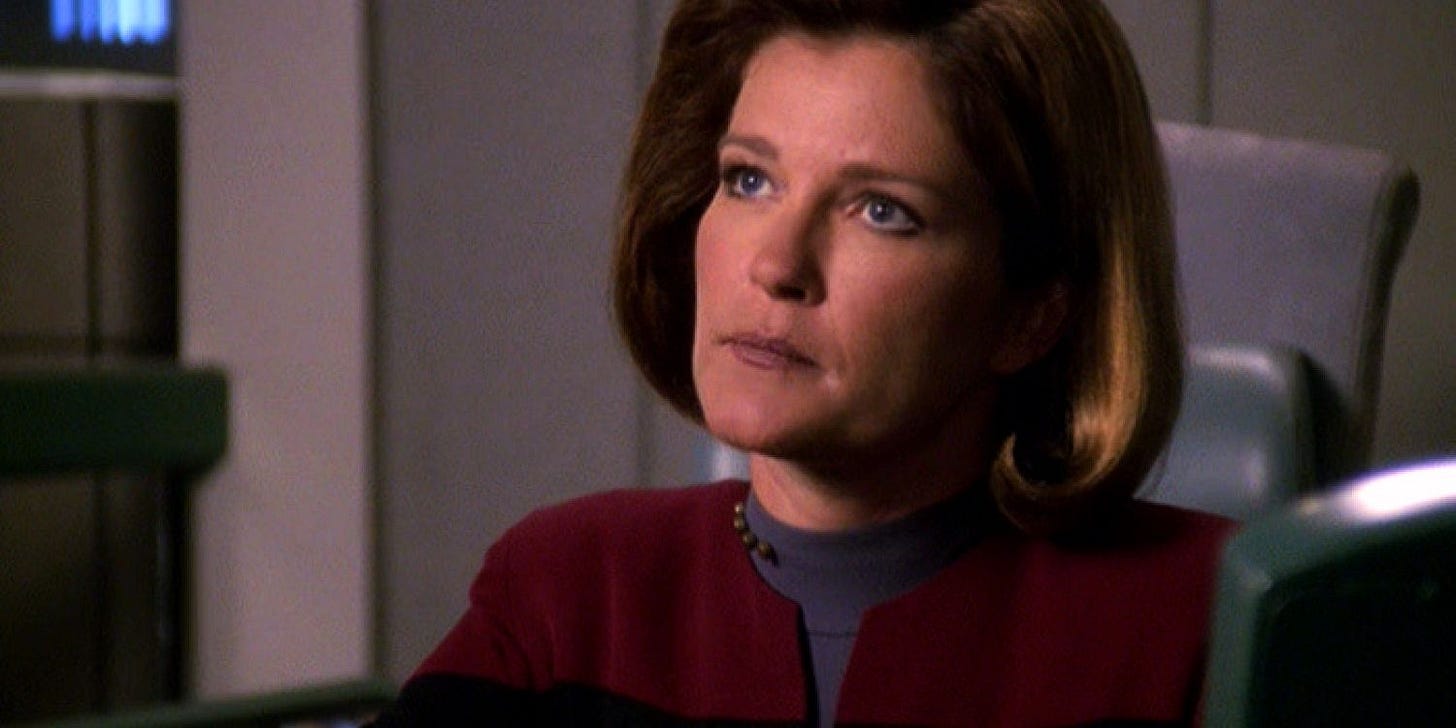
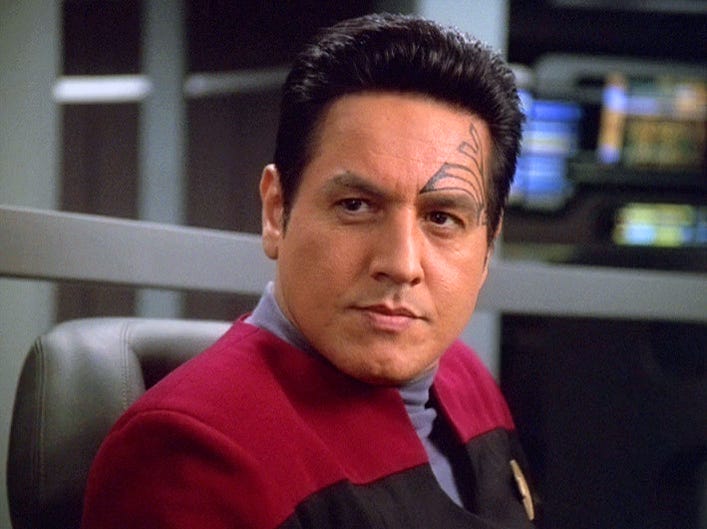


I'm not the first person to note this, but a decline that happens in the background of these stories is their creators going from "Writer who was a fighter pilot and jet-setting international traveler" to "Writer who went to school for writing and then wrote"
My favorite quote from piece:
"This is something I see a lot of people still struggle with. They ... complain about the desecration of their myths, and then fail to realize that the desecration was the point."
This is the ONLY way to move on from the stories we used to love. It's too easy to get wrapped up in the culture war, to believe that if enough Maulers and Critical Drinkers and Nerdrotics complain, that capitalism will reassert itself and these entertainment monoliths will remember they like to make money again.
They won't. It's a cult. The desecration is the point. The funding is bottomless. They own everything. The desecration is the point. They fired the talented people and they're never coming back.
The desecration is the point.